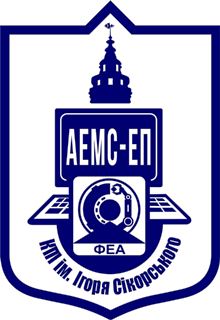| Subject / Educational component | Logic Сircuits Synthesis |
| Educational level | First (Bachelor’s degree) |
| Year of study, semester | 2th year, 1th semester |
| Number of ECTS credits | 90 hours in total
3.0 credits of ECTS |
| Language of study | English |
| Department | Automation of Electromechanical Systems and Electrical Drive |
| Assumed knowledge and prerequisites | General knowledge of mathematics and physics |
| The scope of the course | The subject of the discipline is the study of the basics of methods of obtaining a mathematical description of discrete automation circuits by different methods for their further use in programming of logic controllers and field programmable logic devices used in automation systems. |
| Rationale | Discrete automation systems are widespread in all industries. They are also part of building automation systems, technological processes, installations and complexes, etc. Elements of algebra-logic, as well as the synthesis of single-stroke and multi-stroke circuits by different methods, are widely used in the design of such automation systems based on programmable logic controllers, programmable logic integrated circuits, etc. |
| Learning outcomes
|
– apply axioms and laws of algebra-logic to transform and minimize logical functions;
– apply the method of truth tables and Carnot maps for the synthesis of one-stroke automation schemes; – apply the methods of transition tables and Karnaugh maps, cyclograms and memory cells for the synthesis of multi-stroke automation schemes; – use the equations obtained as a result of logical synthesis to build circuits of electrical principles on logic elements and relay circuits of automation; – solve automation problems for the technical implementation of automation circuits using modern integrated circuits. |
| Competencies and skills
|
The acquired knowledge can be applied by future engineers in the design of automation systems, namely, to use the obtained mathematical description of discrete automation circuits for their further conversion into program code for programmable logic controllers and programmable logic integrated circuits. The use of various methods of synthesis allows very quickly on the basis of the formulation of the operating conditions of industrial automation systems to obtain their mathematical description in the form of discrete equations. |
| Instructional Materials: | Syllabus, ratings, textbook (electronic edition). |
| Mode of delivery: | Lectures, practical classes, individual task |
| End-of-semester control: | Final test |










